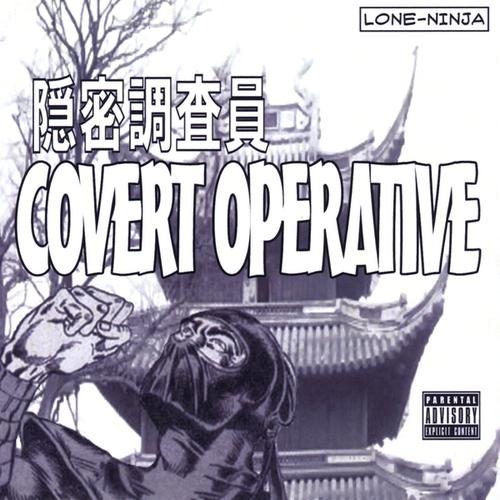If the ninja samples presumably taken from a ’70s pulp ninjitsu film seem highly derivative of the Wu-Tang Clan (and they obviously are), listeners will be surprised to find that Lone Ninja is much more DOOM than Dirt McGirt. The swordplay and dojo references are not to be taken metaphorically as Lone Ninja is apparently quite self-serious about his title, never really stepping out of character on “Covert Operative.” That being said, the concept is never played for humor (as we’d expect from DOOM), so those with no interest in hearing a grown man string multi-syllable rhymes together about the life of a modern day ninja, pay no heed.
As an emcee, Lone Ninja has a strong vocabulary (including various ninja rhetoric) and an impressive rhyme scheme nailed down. However, his leisurely, monotone flow is far from engaging, and with only a single guest feature on the eight-track EP, it doesn’t take long to grow old. It’s not surprising, then, that the highlights of the record come early. On “Lingual Ninjitsu,” Lone Ninja goes off:
“Spark the fuse, when nigga blaze I’m a raging inferno
My soul, you cannot phase ’cause its age is eternal
Turn the page in the journal, learn that I’m a brazen colonel
Who’s not afraid to raid, so this may concern you
Invade your circle, sabotage your plans
Your squad disbands, your mans went as far as he can
Your aura’s a sham, I’m the truth revealed
I’m a brute you should salute for real, ruthless and ill”
The following cut, “Choose Your Own Adventure,” features the EP’s best production (all of which was handled by Twin Perils partner June Marx), a beat reminiscent of GZA’s “1112” with its blending of samurai theme music and boom bap. Lone Ninja rhymes “conquistador” with “beneath the floor,” and it’s the closest we get to a song that works both musically and lyrically. Thereafter, it’s pretty much more of the same with little variability of quality, as the production changes pace almost as rarely as Lone Ninja’s flow. The aforementioned lone guest spot is from June Marx, whose more accessible flow is a relief, but is gone in sixty seconds like Nicolas Cage is (see: Tonedeff). I’m not sure if it’s just my copy or not, but the last track, “Stand Firm” cuts off unexpectedly and is two minutes shorter than the liner notes claim. It’s perhaps unintentional irony, because a minute and a half at a time is the best dosage of Lone Ninja, a talented lyricist without an understanding of how to make good music.

